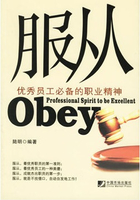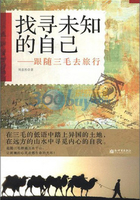第一节 民主党的状况
第一次世界大战之后,罗斯福成为了当时美国民主党的新鲜力量。1919年从巴黎和会铩羽而归的威尔逊总统,已经没有力量再来领导民主党在1920年的竞选活动了。共和党挟参议院中新胜之余威,生气勃勃地投入了夺回失去快八年的总统宝座的斗争。他们趾高气扬地宣称:“威尔逊先生和他的王朝,他的继承人,或对他奴颜婢膝的人,都必须赶下台,清除他们对美国政府的一切影响。”
此时民主党已萎靡不振,有气无力,为了振奋土气而推出詹姆斯·考克斯和富兰克林·罗斯福来竞选总统和副总统,罗斯福明知毫无当选的可能,但为了扩大民主党的影响并使自己进一步在群众中亮相,仍接受提名,并全力以赴进行竞选。在92天中,有84个晚上是在竞选车上度过的。他作了800多次演说。尽管他演说的关于国际联盟的主题不受选民欢迎,但是他的口才和风度却赢得了好感。选举结果,民主党惨败。共和党的哈定·柯立芝搭档获得1600万张选民票和404张选举人票;考克斯·罗斯福搭档只得到900万张选民票和127张选举人票。
但是,对罗斯福来说,这并不是一件坏事。因为他在全国选民面前亮了相,结识了许多重要人物,了解了普通人民的情绪和要求,总结了失败的教训,为他日后的成功提供了可贵的经验。
罗斯福意识到,成功的关键在于争取民心,为此必须善于倾听各方面的意见,把内外政策置于现实的基础上,而不是把梦想当作现实。同时,还必须重视舆论,不重蹈威尔逊对美国人心向背作出错误判断的覆辙。此外,还需重视与国会和在野党的关系。威尔逊组织的出席巴黎和会的代表团,排斥共和党的代表人物,几乎成了民主党一党代表团,招致了在国会中占优势的共和党议员的强烈反对。
经过总结,罗斯福更加心明眼亮,对未来充满信心。为着团结伙伴,笼络人心,他定做了多副金质袖链扣,送给参加竞选班子的男人。链扣的一粒上刻着他的姓名缩写FDR,另一粒上刻着受赠人的缩写姓名,好事者称之为“链扣俱乐部”。后来罗斯福入主白宫后,白宫秘书处都是这帮得到金袖扣的人,被称为“白宫帮”,秘书处主任就是路易斯·豪。
1924年还是共和党的年代,民主党的竞选又失败了。这种情况是罗斯福和路易斯早就预料到的。在此情况下,他一面密切注意着形势的变化,准备东山再起。
1928年又是美国总统选举年。两党的政客、党阀和谋求官职的野心家、市侩纷纷活动起来。民主党又推出连任4届的纽约州州长艾尔·史密斯与共和党的赫伯特·胡佛竞选。但是形势对史密斯很不利,共和党政府正处在“鼎盛时期”,而且共和党候选人胡佛又向群众许了愿:“今后保证让人们的日子过得更美好。”民主党内部意见分歧、组织混乱的现象仍很严重。罗斯福就在这时被提名为民主党参加纽约州州长竞选的候选人。
这是罗斯福身患重病后第一次参加重要公职的竞选。其实,罗斯福对于纽约州州长的职位是向往已久的。刚进入政界时他曾经说过:“谁能当上纽约州长,谁就有成为美国总统的大好机会。”现在罗斯福决心竭尽全力摘取这项桂冠!
罗斯福进行了为期4周的竞选活动。为了使自己能与更多的选民接触,他在竞选后期,改乘汽车而不乘火车。这使他能在几十个村庄和路口向选民们讲演。罗斯福脸色健康,精神抖擞,与选民们握手、拍肩,谈笑风生;凡是候选人该表演的,他都表演了;甚至还有一般候选人所没有的条件,那就是伤残选民对他的敬佩和拥护。他每天平均要作近200英里的竞选旅行,发表12次演说。通过无线电广播,每次就有1500万名听众。罗斯福在竞选的最后三个星期中,总共行程1300英里,发表了50场演说。这使许多跟着他的人都感到疲惫不堪,也使人打消了对他的健康和精力的疑问。
选举日那天,他照例在海德公园村政府大厅授了票,然后到比特莫尔饭店静候结果。对民主党来说,这又是一个难熬的夜晚。初步结果一出来,就很清楚地看出史密斯是这次向胡佛一边倒的选举的牺牲者。内战以前就是民主党地盘的那些州也转向了共和党。史密斯叼着一支熄灭了的雪茄,闷闷不乐地看着宣布的选举结果:胡佛得了2139.2万张选票和444张选举人票,这是美国历史上候选人得到的空前未有的最大胜利。而史密斯得到的只有1501.6万张选票和87张选举人票。胡佛在全国除了8个州以外的其他各州取胜,打进了一贯投民主党的票的南方各州。使史密斯惊惶不安的是,胡佛甚至在纽约也以约10万票的多数赢得胜利。这次选举会有什么样的结果,人们早就心中有数,但实际情况却比最悲观的民主党人所预料的还要凄惨。唯一使民主党得到安慰的是,罗斯福以多获25564票而当选为纽约州长。罗斯福诙谐地把自己称为“0.5%的州长”。然而不管这次胜利多么微小,却把他推到全国政界的注意点。
第二节 罗斯福于1932年在联邦俱乐部的演讲
Common Wealth Club Address
September 23, 1932
I count it a privilege to be invited to address the Commonwealth Club. It has stood in the life of this city and state, and it is perhaps accurate to add, the nation, as a group of citizen leaders interested in fundamental problems of government, and chiefly concerned with achievement of progress in government through non-partisan means.The privilege of addressing you, therefore, in the heat of a political campaign, is great.I want to respond to your courtesy in terms consistent with your policy.
I want to speak not of politics but of government. I want to speak not of parties, but of universal principles.They are not political, except in that larger sense in which a great American once expressed a definition of politics, that nothing in all of human life is foreign to the science of politics……
The issue of government has always been whether individual men and women will have to serve some system of government of economics, or whether a system of government and economics exists to serve individual men and women. This question has persistently dominated the discussion of government for many generations.On questions relating to these things men have differed, and for time immemorial it is probable that honest men will continue to differ.
The final word belongs to no man; yet we can still believe in change and in progress. Democracy, as a dear old friend of mine in Indian, Meredith Nicholson, has called it, is a quest, a never-ending seeking for better things, and in the seeking for these things and the striving for better things, and in the seeking for these things and the striving for them, there are many roads to follow.But, if we map the course of these roads, we find that there are only two general directions.
When we look about us, we are likely to forget how hard people have worked to win the privilege of government. The growth of the national governments of Europe was a struggle for the development of a centralized force in the nation, strong enough to impose peace upon ruling barons.In many instances the victory of the central government, the creation of a strong central government, was a haven of refuge to the individual.The people preferred the master far away to the exploitation and cruelty of the smaller master near at hand.
But the creators of national government were perforce ruthless men. They were often cruel in their methods, but they did strive steadily toward something that society needed and very much wanted, a strong central state, able to keep the peace, to stamp out civil war, to put the unruly nobleman in his place, and to permit the bulk of individuals to live safely.The man of ruthless force had his place in developing a pioneer country, just as he did in fixing the power of the central government in the development of nations.Society paid him well for his services and its development.When the development among the nations of Europe, however, has been completed, ambition, and ruthlessness, having served its term tended to overstep its mark.
There came a growing feeling that government was conducted for the benefit of a few who thrived unduly at the expense of all. The people sought a balancing——a limiting force.There came gradually, through town councils, trade guilds, national parliaments, by constitution and by popular participation and control, limitations on arbitrary power.
Another factor that tended to limit the power of those who ruled, was the rise of the ethical conception that a ruler bore a responsibility for the welfare of his subjects.
The American colonies were born in this struggle. The American Revolution was a turning point in it.After the revolution the struggle continued and shaped itself in the public life of the country.There were those who because they had seen the confusion which attended the years of war for American independence surrendered to the belief that popular government was essentially dangerous and essentially unworkable.They were honest people, my friends, and we cannot deny that their experience had warranted some measure of fear.The most brilliant, honest and able exponent of this point of view was Hamilton.He was too impatient of slow moving methods.Fundamentally he believed that the safety of the republic lay in the autocratic strength of its government, that the destiny of individuals was to serve that government, and that fundamentally a great and strong group of central institutions, guided by a small group of able and public spirited citizens could best direct all government.
But Mr. Jefferson, in the summer of 1776, after drafting the Declaration of Independence turned his mind to the same problem and took a different view.He did not deceive himself with outward forms.Government to him was a means to an end, not an end in itself; it might be either a refuge and a help or a threat and a danger, depending on the circumstances.We find him carefully analyzing the society for which he was to organize a government. "We have no paupers.The great mass of our population is of laborers, our rich who cannot live without labor, either manual or professional, being few and of moderate wealth.Most of the laboring class possess property, cultivate their own lands, have families and from the demand for their labor, are enabled to exact from the rich and the competent such prices as enable them to feed abundantly, clothe above mere decency, to labor moderately and raise their families."
These people, he considered, had two sets of rights, those of "personal competency" and those involved in acquiring and possessing property. By "personal competency" he meant the right of free thinking, freedom of forming and expressing opinions, and freedom of personal living each man according to his own lights.To insure the first set of rights, a government must so order its functions as not to interfere with the individual.But even Jefferson realized that the exercise of the property rights might so interfere with the rights of the individual that the government, without whose assistance the property rights could not exist, must intervene, not to destroy individualism but to protect it.
You are familiar with the great political duel which followed, and how Hamilton, and his friends, building towards a dominant centralized power were at length defeated in the great election of 1800, by Mr. Jefferson's party.Out of that duel came the two parties, Republican and Democratic, as we know them today.
So began, in American political life, the new day, the day of the individual against the system, the day in which individualism was made the great watchword of American life. The happiest of economic conditions made that day long and splendid.On the Western frontier, land was substantially free.No one, who did not shirk the task of earning a living, was entirely without opportunity to do so.Depressions could, and did, come and go; but they could not alter the fundamental fact that most of the people lived partly by selling their labor and partly by extracting their livelihood from the soil, so that starvation and dislocation were practically impossible.At the very worst there was always the possibility of climbing into a covered wagon and moving west where the untilled prairies afforded a haven for men to whom the East did not provide a place.So great were our natural resources that we could offer this relief not only to our own people, but to the distressed of all of the world; we could invite immigration from Europe, and welcome it with open arms.Traditionally, when a depression came, a new section of land was opened in the West; and even our temporary misfortune served our manifest destiny.
It was the middle of the 19th century that a new force was released and a new dream created. The force was what is called the industrial revolution, the advance of steam and machinery and the rise of the forerunners of the modern industrial plant.The dream was the dream of an economic machine, able to raise the standard of living for everyone; to bring luxury within the reach of the humblest; to annihilate distance by steam power and later by electricity, and to release everyone from the drudgery of the heaviest manual toil.It was to be expected that this would necessarily affect government.Heretofore, government had merely been called upon to produce conditions within which people could live happily, labor peacefully, and rest secure.Now it was called upon to aid in the consummation of this new dream.There was, however, a shadow over the dream.To be made real, it required use of the talents of men of tremendous will, and tremendous ambition, since by no other force could the problems of financing and engineering and new developments be brought to a consummation.
So manifests were the advantages of the machine age, however, that the United States fearlessly, cheerfully, and, I think, rightly, accepted the bitter with the sweet. It was thought that no price was too high to pay for the advantages which we could draw from a finished industrial system.The history of the last half century is accordingly in large measure a history of a group of financial Titans, whose methods were not scrutinized with too much care, and who were honored in proportion as they produced the results, irrespective of the means they used.The financiers who pushed the railroads to the Pacific were always ruthless, we have them today.It has been estimated that the American investor paid for the American railway system more than three times over in the process; but despite that fact the net advantage was to the United States.As long as we had free land; as long as population was growing by leaps and bounds; as long as our industrial plants were insufficient to supply our needs, society chose to give the ambitious man free play and unlimited reward provided only that he produced the economic plant so much desired.
During this period of expansion, there was equal opportunity for all and the business of government was not to interfere but to assist in the development of industry. This was done at the request of businessmen themselves.The tariff was originally imposed for the purpose of "fostering our infant industry" , a phrase I think the older among you will remember as a political issue not so long ago.The railroads were subsidized, sometimes by grants of money, oftener by grants of land; some of the most valuable oil lands in the United States were granted to assist the financing of the railroad which pushed through the Southwest.A nascent merchant marine was assisted by grants of money, or by mail subsidies, so that our steam shipping might ply the seven seas.Some of my friends tell me that they do not want the Government in business.With this I agree; but I wonder whether they realize the implications of the past.For while it has been American doctrine that the government must not go into business in competition with private enterprises, still it has been traditional particularly in Republican administrations for business urgently to ask the government to put at private disposal all kinds of government assistance.
The same man who tells you that he does not want to see the government interfere in business——and he means it, and has plenty of good reasons for saying so——is the first to go to Washington and ask the government for a prohibitory tariff on his product. When things get just bad enough——as they did two years ago——he will go with equal speed to the United States government and ask for a loan; and the Reconstruction Finance Corporation is the outcome of it.Each group has sought protection from the government for its own special interest, without realizing that the function of government must be to favor no small group at the expense of its duty to protect the rights of personal freedom and of private property of all its citizens.
In retrospect we can now see that the turn of the tide came with the turn of the century. We were reaching our last frontier; there was no more free land and our industrial combinations had become great uncontrolled and irresponsible units of power within the state.Clear-sighted men saw with fear the danger that opportunity would no longer be equal; that the growing corporation, like the feudal baron of old, might threaten the economic freedom of individuals to earn a living.In that hour, our antitrust laws were born.The cry was raised against the great corporations.Theodore Roosevelt, the first great Republican progressive, fought a Presidential campaign on the issue of "trust busting" and talked freely about malefactors of great wealth.If the government had a policy it was rather to turn the clock back, to destroy the large combinations and to return to the time when every man owned his individual small business.
This was impossible; Theodore Roosevelt, abandoning the idea of "trust busting" , was forced to work out a difference between "good" trusts and "bad" trusts. The Supreme Court set forth the famous "rule of reason" by which it seems to have meant that a concentration of industrial power was permissible if the method by which it got its power, and the use it made of that power, was reasonable.
Woodrow Wilson, elected in 1912, saw the situation more clearly. Where Jefferson had feared the encroachment of political power on the lives of individuals, Wilson knew that the new power was financial.He say, in the highly centralized economic system, the depot of the twentieth century, on whom great masses of individuals relied for their safety and their livelihood, and whose irresponsibility and greed (if it were not controlled) would reduce them to starvation and penury.The concentration of financial power had not proceeded so far in 1912 as it has today; but it had grown far enough for Mr.Wilson to realize fully its implications.It is interesting, now, to read his speeches.
What is called "radical" today (and I have reason to know whereof I speak) is mild compared to the campaign of Mr. Wilson. "No man can deny," he said, "that the lines of endeavor have more and more narrowed and stiffened; no man who knows anything about the development of industry in this country can have failed to observe that the larger kinds of credit are more and more difficult to obtain unless you obtain them upon terms of uniting your efforts with those who already control the industry of the country, and nobody can fail to observe that every man who tries to set himself up in competition with any process of manufacture which has taken place under the control of large combinations of capital will presently find himself either squeezed out or obliged to sell and allow himself to be absorbed."
Had there been no World War——had Mr. Wilson been able to devote eight years to domestic instead of to international affairs——we might have had a wholly different situation at the present time.However, the then distant roar of European cannon, growing ever louder, forced him to abandon the study of this issue.The problem he saw so clearly is left with us as a legacy; and no one of us on either side of the political controversy can deny that it is a matter of grave concern to the government.
A glance at the situation today only too clearly indicates that equality of opportunity as we have knew it no longer exists. Our industrial plant is built; the problem just now is whether under existing conditions it is not overbuilt.Our last frontier has long since been reached, and there is practically no more free land.More than half of our people do not live on the farms or on lands and cannot derive a living by cultivating their own property.There is no safety valve in the from of a Western prairie to which those thrown out of work by the Eastern economic machines can go for a new start.We are not able to invite the immigration from Europe to share our endless plenty.We are now providing a drab living for our own people.
Our system of constantly rising tariffs has at last reacted against us to the point of closing our Canadian frontier on the north, our European markets on the east, many of our Latin American markets to the south, and a goodly proportion of our Pacific markets on the west, through the retaliatory tariffs of those countries. It has forced many of our great industrial institutions who exported their surplus production to such countries, to establish plants in such countries within the tariff walls.This has resulted in the reduction of the operation of their American plants, and opportunity for employment.
Just as freedom to farm has ceased, so also the opportunity in business has narrowed. It still is true that men can start small enterprises, trusting to native shrewdness and ability to keep abreast of competitors; but area after area has been preempted altogether by the great corporations, and even in the fields which still have no great concerns, the small man starts with a handicap.The unfeeling statistics of the past three decades show that the independent business man is running a losing race.Perhaps he is forced to the wall; perhaps he cannot command credit; perhaps he is "squeezed out," in Mr.Wilson's words, by highly organized corporate competitors, as your corner grocery man can tell you.
Recently a careful study was made of the concentration of business in the United States. It showed that our economic life was dominated by some six hundred odd corporations who controlled two-thirds of American industry.Ten million small business men divided the other third.More striking still, it appeared that if the process of concentration goes on at the same rate, at the end of another century we shall have all American industry controlled by a dozen corporations, and run by perhaps a hundred men.Put plainly, we are steering a steady course toward economic oligarchy, if we are not there already.
Clearly, all this calls for a re-appraisal of values. A mere builder of more industrial plants, a creator of more railroad systems, and organizer of more corporations, is as likely to be a danger as a help.The day of the great promoter or the financial Titan, to whom we granted anything if only he would build, or develop, is over.Our task now is not discovery or exploitation of natural resources, or necessarily producing more goods.It is the soberer, less dramatic business of administering resources and plants already in hand, of seeking to reestablish foreign markets for our surplus production, of meeting the problem of under consumption, of adjusting production to consumption, of distributing wealth and products more equitably, of adapting existing economic organizations to the service of the people.The day of enlightened administration has come.
Just as in older times the central government was first a haven of refuge, and then a threat, so now in a closer economic system the central and ambitious financial unit is no longer a servant of national desire, but a danger. I would draw the parallel one step farther.We did not think because national government had become a threat in the 18th century that therefore we should abandon the principle of national government.Nor today should we abandon the principle of strong economic units called corporations, merely because their power is susceptible of easy abuse.In other times we dealt with the problem of an unduly ambitious central government by modifying it gradually into a constitutional democratic government.So today we are modifying and controlling our economic units.
As I see it, the task of government in its relation to business is to assist the development of an economic declaration of rights, an economic constitutional order. This is the common task of statesman and business man.It is the minimum requirement of a more permanently safe order of things.
Every man has a right to life; and this means that he has also a right to make a comfortable living. He may by sloth or crime decline to exercise that right; but it may not be denied him.We have no actual famine or death; our industrial and agricultural mechanism can produce enough and to spare.Our government formal and informal, political and economic, owes to every one an avenue to possess himself of a portion of that plenty sufficient for his needs, through his own work.
Every man has a right to his own property; which means a right to be assured, to the fullest extent attainable, in the safety of his savings. By no other means can men carry the burdens of those parts of life which, in the nature of things afford no chance of labor; childhood, sickness, old age.In all thought of property, this right is paramount; all other property rights must yield to it.If, in accord with this principle, we must restrict the operations of the speculator, the manipulator, even the financier, I believe we must accept the restriction as needful, not to hamper individualism but to protect it.
These two requirements must be satisfied, in the main, by the individuals who claim and hold control of the great industrial and financial combinations which dominate so large a pert of our industrial life. They have undertaken to be, not business men, but princes-princes of property.I am not prepared to say that the system which produces them is wrong.I am very clear that they must fearlessly and competently assume the responsibility which goes with the power.So many enlightened business men know this that the statement would be little more that a platitude, were it not for an added implication.
This implication is, briefly, that the responsible heads of finance and industry instead of acting each for himself, must work together to achieve the common end. They must, where necessary, sacrifice this or that private advantage; and in reciprocal self-denial must seek a general advantage.It is here that formal government-political government, if you choose, comes in.Whenever in the pursuit of this objective the lone wolf, the unethical competitor, the reckless promoter, the Ishmael or Insull whose hand is against every man's, declines to join in achieving and end recognized as being for the public welfare, and threatens to drag the industry back to a state of anarchy, the government may properly be asked to apply restraint.Likewise, should the group ever use its collective power contrary to public welfare, the government must be swift to enter and protect the public interest.
The government should assume the function of economic regulation only as a last resort, to be tried only when private initiative, inspired by high responsibility, with such assistance and balance as government can give, has finally failed. As yet there has been no final failure, because there has been no attempt, and I decline to assume that this nation is unable to meet the situation.
The final term of the high contract was for liberty and the pursuit of happiness. We have learnt a great deal of both in the past century.We know that individual liberty and individual happiness mean nothing unless both are ordered in the sense that one man's meat is not another man's poison.We know that the old "rights of personal competency" ——the right to read, to think, to speak to choose and live a mode of life, must be respected at all hazards.We know that liberty to do anything which deprives others of those elemental rights is outside the protection of any compact; and that government in this regard is the maintenance of a balance, within which every individual may have a place if he will take it; in which every individual may find safety if he wishes it; in which every individual may attain such power as his ability permits, consistent with his assuming the accompanying responsibility……
Faith in America, faith in our tradition of personal responsibility, faith in our institutions, faith in ourselves demands that we recognize the new terms of the old social contract. We shall fulfill them, as we fulfilled the obligation of the apparent Utopia which Jefferson imagined for us in 1776, and which Jefferson, Roosevelt and Wilson sought to bring to realization.We must do so, lest a rising tide of misery engendered by our common failure, engulf us all.But failure is not an American habit; and in the strength of great hope we must all shoulder our common load.
联邦俱乐部演说
1932年9月23日
能在联邦俱乐部发言,我感到十分荣幸。联邦俱乐部对这个城市、对这个州影响巨大,或者更确切地说,对美国影响巨大。联邦俱乐部,作为一个公民领袖组织,对政体的根本问题感兴趣,特别关注以无党派方式取得的政体进步。能在竞选活动最激烈的时候,有幸为你们做这次演讲真是令人激动。为了报答你们的好意,我会与你们保持原则上的一致。
我不想谈政治而要谈谈政体,也不谈政党而要说说普遍原则。这些与政治无关,尽管一位美国伟人曾经给政治下的定义是从广义上讲一切人类生活皆与政治科学有关。
政体问题通常就是个人是否不得不服从某种经济体制,或者某种政治经济体制的存在是否服务于个人。这个问题是长久以来讨论政体问题的核心所在。一直以来,人们围绕政体问题,有过许多不同的见解。而且坦率的人们很有可能还是一如既往地坚持自己的观点。
没有人对此有最后发言权,但我们仍然坚信会有所改变,有所进步。正如我们一位亲爱的印度老友梅雷蒂斯尼克尔森说的,民主是一种渴求,一种对更好事物的不断寻求。在找寻这些并努力去获取更好事物的过程中,有很多路可走。但是,如果我们描绘出这些路的方向,我们会发现大致只有两个方向。
当我们环顾自己周围,可能会忘了人民付出了多少努力去获得政府特权。欧洲各国政府的发展就是国家不断加强中央集权的斗争过程。在许多情况下,中央政府的成功或者说一个强大中央政府的建立对个人而言是一个庇护所。人民宁可选择一个远在天边的主人,也不愿意承受近在咫尺的主人的剥削和凌虐。
然而国家政府的创建者必定是无情的。他们通常手段残酷,但的的确确是在不断地为社会所需以及迫切所需而奋斗。一个强大的中央政府能够维护社会稳定、避免内战、让蛮横的贵族安分守己,还能让大多数人过上安定的生活。在一个先驱国家的发展中,铁血手腕之人不可或缺,正如国家发展期间他在巩固中央政府权力上所做的一切。社会对他的付出回报甚多,同时社会也得以发展。然而当欧洲各国的发展完善后,野心和冷酷往往早已超过了可以承受的常态。
那时人们越来越觉得政府是为了一小撮人的利益服务,这些人可以为了暴富而牺牲一切。老百姓开始寻求一种平衡的、有限度的权力。之后他们渐渐地通过镇议会、同业公会、国民议会,用宪法和民众参与和控制的手段来对强权加以限制。另一个往往能限制统治者权力的因素是道德观念的兴起,道德观念认为一个统治者应该对其国民的福利待遇承担责任。
北美殖民地就是在这种抗争中诞生。其中,美国独立战争是个转折点,但这之后抗争得以延续,并对国家公众生活产生重大影响。有一些参加了多年独立战争的人因为曾经目睹了混乱的状态,所以相信一个民选政府必然是危险的而且是不可行的。朋友们,他们是坦诚的。我们得承认他们肯定经历了许多可怕的事情。汉密尔顿是这种思想最卓越、最真实也是最能干的倡导者。他对行动缓慢的做法很反感。他从根本上坚信共和国的安定在于政府本身专政的力量,认为个人注定要为政府服务,而且小部分能干且有公众意识的公民可以领导一系列强大的中央机构,而这些机构可以很好地履行各项政府职能。
但在1776年的夏天,在起草《独立宣言》后,杰斐逊先生想到了同样的问题,却持有不同的观点。他不喜欢自欺欺人。对他而言,政府是达到目标的一种方法而非目标本身。在不同情况下,政府可以是一个避风港、一种援助,也可能成为一种威胁和危险。我们发现他对要组建政府的这个社会做了仔细的分析:“我们没有穷人。我们人口中的大部分是劳动力。无论是那些极少部分的富人还是中产阶级,他们在体力劳动和脑力劳动上都依赖劳动力。大部分的劳动阶级拥有财产,耕种自己的田地,有家庭。富人和雇主需要劳力,这样劳动者就能向他们索取报酬来吃饱、穿暖,做适量工作来养活全家。”
杰斐逊认为,这些人有两项权利,一个关于“个人权利”,另一个涉及财产的获得和拥有。个人权利在他看来是指一个人有权自由思想,自由提出和表达看法以及根据个人能力自由生存。为了保障人们的第一类权利,政府必须严格履行其职能以免干涉到个人。然而杰斐逊也认识到财产权的行使可能会阻碍到个人的一些权力。这样一来,政府就必须干预,这并不是要破坏个人主义,而是一种保护。没有政府的协助,财产权无法存在。
你们对此后的那场激烈的政治斗争应该不会陌生:期望建立一个高度集权政府的汉密尔顿和他的朋友们,最后在1800年的大选中被杰斐逊带领的政党击败。在那次政治斗争之后出现了两个政党,就是我们今天所知道的共和党和民主党。从此开启了美国政治生活的新时代。在这个时代,个人与制度相抗衡,个人主义成为美国人生活中最响亮的口号。最佳的经济环境使那个时代持久而且辉煌。在西部边远地区,土地是完全自由的。如果不是刻意要逃避谋生,没有人会活不下去。经济萧条可能也的确是来了又走了,但并不能改变基本现状:大部分人一半靠出卖劳动力,一半靠种地谋生。这样的话,几乎不可能出现饥饿和混乱。
到了最糟糕的时候,人们就会坐上有篷马车前往西部,那里有未开垦的大草原,可以提供给人们东部所没有的港湾。我们的自然资源如此丰富,不仅可以提供救济给国人,也可以给全世界受苦的人们。我们可以邀请欧洲的移民并张开双臂欢迎他们的到来。就传统而言,当萧条时期来临,在西部就会有一部分新的土地开放。即使暂时的灾难也能满足我们扩张美国在北美洲领土的需要。
就在19世纪中叶,出现了一股新势力,人们创造了一个新梦想。那股新势力就是现在所说的工业革命,蒸汽动力和机械动力开始发展,出现了现代工业工厂的前身。梦想有一个经济机器,能够提高每个人的生活水平,让最贫穷的人们也能享受奢侈,通过蒸汽动力和之后的电力来彻底消除地域上的距离,使每个人都能从报酬最低、最辛苦的体力劳动中解脱出来。人们预料到,这不可避免地会影响到政府。在此之前,人们只是要求政府创造条件让人们开心地生活,平静地劳作,安稳地休息。而现在人们还要求政府协助实现他们的新梦想。但是,这个梦想被蒙上了一层阴影。要实现它需要意志力强大和雄心勃勃的人们发挥他们的才能,因为其他力量都无法让财政、工程以及新的发展问题得以圆满解决。
然而,尽管机器时代的优势非常明显,我认为美国还是大胆地、愉快地、肯定地接受了这种苦乐参半。人们认为一个完善的工业体系带来的好处是无价的。因此,过去半个世纪的历史很大程度上是属于一群经济巨头的。人们没有仔细探究他们的方法。同时,不管他们用何种方式,他们都因自己做出的成果获得了相应的荣誉。那些建造了太平洋铁路的金融家们都是残酷无情的。我们现在仍然可以看到这样的人。据估计,美国投资者在美国铁路系统建设过程中多花了三倍多的钱,但是事实上美国确实享受到了铁路网线带来的好处。只要我们有自由空旷的土地,只要人口数量突飞猛进地增长,只要我们的工业工厂不能满足我们的需求,社会就会让野心勃勃的人们尽情发挥并给予无条件的奖励,只要他们能建造出入们所迫切需要的经济工厂。
在扩张的这段时期内,每个人都享有平等的机会,政府的职能不是干预而是支持工业的发展。这也是商人们自己的要求。最初,征收关税是为了“培养我们的新生工业”。我想,你们中的年长者听到这个说法,会感觉就像发生在不久前的一桩政治事件。铁路有时由现金资助,更多情况下采取土地补偿。美国的一些最有价值的储有石油的土地被作为建造穿越西南部铁路的补偿。一个新建的商船队由现金或者邮政补助金资助,这样我们的蒸汽船就能往来于七大洋了。
我的一些朋友告诉我他们不愿意政府介入商业活动。这一点我同意,但我不清楚他们知不知道历史给我们的昭示。曾经有段时间,政府一定不能介入商业活动与私人企业竞争成为美国教条。特别是在共和党政府中,人们仍然迫切要求政府不干扰企业自由决断,而仅在商业方面提供各项协助。
还是那个人,他告诉你他不想看见政府插手商业——他是当真的,也有充分的理由这样说——却第一个去华盛顿,并要求政府禁止给他的商品上关税的人。当事情如同两年前那样变得非常糟糕的时候,他又以同样的速度到美国政府要求贷款,而复兴银行公司就这样应运而生了。每个集团都为了自己的个别利益寻求政府保护,却没有认识到政府不能因照顾少数团体而以未尽到保护个人自由和所有公民私有财产权的责任作为代价。
追溯过去,现在我们可以看到随着世纪的交替,形势也在转变。我们正向最后一块边远地区靠近。再没有自由的土地了,我们的联合企业已严重失控,在州内成了不负责任的权势部门。聪明的人看到了失去平等机会的危机,害怕一个发展中的公司会像一位封建老男爵那样,威胁到个人谋生的经济自由。就在那个重要时刻,我们的反垄断法出台了。反对大型企业的呼声高涨。第一位伟大的共和党进步主义人物西奥多·罗斯福发起了以“取缔垄断”为主题的总统竞选,并纵谈巨富的作恶者。如果政府可以采取政策,人们更情愿摧毁强大的商业联合,回到过去每个人都拥有自己小企业的时代。
但这是不可能的。西奥多·罗斯福放弃了“取缔垄断”的想法,只能提出区别“好的”托拉斯和“坏的”托拉斯。最高法院提出了著名的“理性原则”,这样似乎就意味着如果企业获取权力的方式以及对这个权力的使用是合理的,那么工业集权是允许的。
1912年当选总统的伍德罗·威尔逊更能看清形势。杰斐逊曾担心政权会侵害到个人生活,威尔逊则知道那个新权是关于经济的。他说,在高度集中的经济体系中,20世纪的储备库会保证民众的安全与生存。但如果没有得到控制,那些不负责任和贪婪的人会让民众陷入饥饿与赤贫中。财政集权到1912年为止和现在相比没有任何进步。但它的发展足以让威尔逊先生充分意识到它的潜在影响。现在看他的演讲稿觉得很有意思。
今天所谓的“激进分子”(我有理由知道我讲的是什么)同威尔逊的竞选运动比起来还是温和的。他说:“没有人可以否认努力的方向变得越来越窄、越来越僵化;了解这个国家工业发展的人都知道,除非你与那些已经控制国家工业的人联手,否则大型贷款越来越难获得;大家都知道任何一个人,若指望通过生产任何东西来提升竞争力,而又碰上强大的资本联合体的控制,不久就会发现自己要么被排挤,要么被迫出售企业然后被人吞并。”
如果没有世界大战,假如威尔逊花八年的时问投身到国内事务而非国际事务的话,我们可能有着截然不同的现状。但是,那时从欧洲传来的大炮轰鸣,正愈发响亮,迫使他放弃研究这个问题。他把看清了的问题作为遗产留给了我们。站在政治争议两边的所有人都不能否认这是一个政府要高度关注的问题。
对现状的一瞥只是很清楚地表明我们所知道的机会均等已不复存在。我们建造了工厂,现在的问题就是在现有条件下是否建造得过多。我们最后一片开发地区很早被开发,基本上没有自由土地了。我们超过一半的人不住在农场或田地,也不能靠耕种自己的土地来谋生。因东部经济集团而失业的人原先可以靠西部草原展开新生活,现在这种方式也已经不可靠了。我们不能邀请欧洲的移民来同我们分享无限的资源了。现在我们供给国民的是单调灰暗的生活。
奉行不断增加关税的机制最后在我们自己身上起到了反作用,以至于一些国家以报复性的关税关闭了我们北部的加拿大边界线,东部的欧洲市场,许多南部的拉丁美洲市场和西部相当一部分的太平洋市场。迫于压力,我们的许多向这些地区输出剩余产品的大型工业集团不得不在这些国家里,在关税壁垒中建立工厂。这就导致了企业对美国本土工厂的控制力度减弱,国内就业机会也相对减少。
正如不能再自由地去建农场,商业机会也在变少。确实人们凭着天生的精明和与竞争者共舞的能力,可以建立起小型企业。但一个又一个领域已经完全被大型企业抢占先机,甚至在还未被广泛关注的领域,建立小企业也步履维艰。过去三十年的数据无情地显示出私人企业家注定要失败。也许是他被逼人绝境,也许他无法获得贷款,又或者用威尔逊先生的话说是被组织严密的竞争企业淘汰了,就像街角的杂货店店员说的。
最近,一项关于商业的调查研究在美国展开。此项调查表明我们的经济生活由大约六百多个公司掌控,这些公司控制了美国工业的三分之二。一千万个小企业分占了剩余的三分之一。更令人吃惊的是,似乎如果集中的进程以这样的速度继续发展下去的话,在下个世纪末我们美国工业可能就由十来个公司控制,也许由百余人拳控。坦率地说,尽管我们现在还不是一个由经济寡头统治的国家,但我们正稳步朝着这样的方向前进。
显然,这一切都需要对价值观重新审视。更多大型工厂的建造者,更为庞大的铁道系统的创建者或更多公司的组织者,可能会有帮助但也可能是种危险。我们曾经承诺只要那些了不起的筹办人或金融巨头创建或发展工业,我们就给予他们一切方便。这样的时代已经过去了。
我们现在的任务不是发现或开发自然资源,也不需要生产更多的东西。我们要做更冷静而又不那么巨大的举措。我们要管理手头上已有的资源和工厂,要为我们的过剩产品重建海外市场,正视消费不足的问题,根据消费调整生产,更公正地分配财富和产品,让现有的经济组织为人们服务。一个开明治国的时代已经到来。
正如早期,中央政府先是避难所,然后成了威胁。如今在一个更为紧密的经济体系中,集中的野心勃勃的金融机构不再是实现民族夙愿的公仆,而是一个危险因素。我想更进一步做个比较。我们不认为,因为国家政府在18世纪变成了威胁,我们就应该放弃规范那些国家政府规范。现在我们也不该丢弃被称为公司的强大经济集团的条款,实在是因为它们的权力太容易被滥用了。从前,我们在处理过分野心勃勃的中央政府的问题时,是逐渐将政府改造成为一个民主宪政的政府。因此现在我们正修正和控制我们的经济机构。
正像我所看到的,在政府与商务的关系方面,政府的任务是要协助“经济权力法案”和“经济宪法秩序”的发展。这是政治家和商人共同的任务,是保持一个更加持久安全的秩序的基本条件。
每个人都有生存的权力,这也同样意味着他有权利过舒适的生活。可能因为懒惰或犯罪,他拒绝行使这项权力,但他的这项权力不会被剥夺。没有人真的因为饥荒或饥饿而死去。我们的工业和农业机器可以生产足够多的东西,并用以分配。我们的政府,不管是正式的或是不正式的,政治上或是经济上,都会给予每个人一个途径,让他通过自己的劳动去获取能充分满足自己需要的一份。
每个人对自己的财产都有所有权,意思是有权尽可能地保证每个人的储蓄安全。在孩童、生病和老年这些人生阶段,绝不应该让人们有负担,因为那些时间是肯定没有工作机会的。在财产所有权中,这项权利占首位。其他的财产权都要服从于它。如果基于这个原则,我们必须约束投机者、操纵者甚至金融家的行为。我坚信我们必须相信约束是必要的,但不是去束缚个人主义而是要保护它。
那些获得并掌控大型工业和金融联合机构的人们必须基本上满足这两个要求。那些联合体支配着我们工业生活的绝大部分。他们承诺不仅仅做商人而要成为巨头——财富巨头。我不情愿说制造出他们的这个体制是错的。我很清楚他们必须大胆地完全承担与他们权力相当的责任。许多精明的商人都很清楚这一点,如果不是还有其饱含义的话,这样说甚至成了陈词滥调。
这个含义简单说来就是有责任的金融和工业巨头必须同心协力实现共同的目标,而不是自顾自。他们必须在需要的时刻牺牲这样或那样的个人利益。在自己利益不能实现的时候必须寻求大众利益。如果你选择的话,那么正式政府——政治政府就会参与。在追求这个目标时,孤立无援的人、不道德的竞争者、鲁莽的发起人、与众人背道而驰的社会公敌或是英萨尔,都拒绝参与公共福利的实现,并威胁要把工业带回无政府状态,那样政府可能会实施约束措施。同样的,如果集团要使用集体权力反对公共福利,那么政府必会立刻介入并保护公众利益。
政府应该具有经济调节的职能,但只能作为最后的诉诸对象。只有当私人主动性被高度责任心激励,也有政府的协助和协调,但最终仍失败时,政府才应该尝试使用经济调节手段。至今,没有最终的失败,因为没有人尝试。我绝不相信这个国家会无力应对形势。
人类最高的目标是对自由和幸福的追求。过去一个世纪以来,我们非常了解这两方面的追求。我们知道,如果一个人的幸福是建立在另一个人的痛苦之上,那么个人自由和个人幸福毫无意义。我们知道以前的“个人能力的权利”是指有权阅读、思考、说话、选择生活模式,这种权利不管怎样都必须得到尊重。我们知道,任何一个条约都不保护剥夺了他人的基本权利去自由行事的权利。我们还知道在这方面政府起到维持平衡的作用:每个人都有立足之地,如果他愿意接受;每个人都能得到安全感,只要他希望;每个人都能得到权力,只要他有这样的能力,同样也伴随着因此而产生的义务。
相信美国,相信个人责任的传统,相信我们的制度,相信我们自己,这需要我们辨清过时的社会契约中的新条款。我们必将实现它们,正如我们实现了表面上的乌托邦。那是1776年杰斐逊为我们设想的,也是杰斐逊、罗斯福和威尔逊寻求实现的。我们必须这样做,以免我们共同失败所导致的苦难的潮水不断高涨,将我们都吞没。但是失败不是美国的习惯。在巨大希望的力量下,我们必须一起承担我们共同的重任。
第三节 演说语录总汇
A never ending seeking for better things, and in the seeking for these things and the striving for better things, and in the seeking for these things and the striving for them, there are many roads to follow.
民主是一种渴求,一种对更好事物的不断寻求。在找寻这些并努力去获取更好事物的过程中,有很多路可走。
The people preferred the master far away to the exploitation and cruelty of the smaller master near at hand.
人民宁可选择一个远在天边的主人,也不愿意承受近在咫尺的主人的剥削和凌虐。
The final term of the high contract was for liberty and the pursuit of happiness. We have learnt a great deal of both in the past century.We know that individual liberty and individual happiness mean nothing unless both are ordered in the sense that one man-s meat is not another man-s poison.
人类最高的目标是对自由和幸福的追求。过去一个世纪以来,我们非常了解这两方面的追求。我们知道,如果一个人的幸福是建立在另一个人的痛苦之上,那么个人自由和个人幸福毫无意义。
Every individual may have a place if he will take it; in which every individual may find safety if he wishes it; in which every individual may attain such power as his ability permits, consistent with his assuming the accompanying responsibility.
我们还知道在这方面政府起到维持平衡的作用,每个人都有立足之地,如果他愿意接受;每个人都能安心生活,只要他希望;每个人都能得到权力,只要他有这样的能力,也可以履行因此带来的义务。















